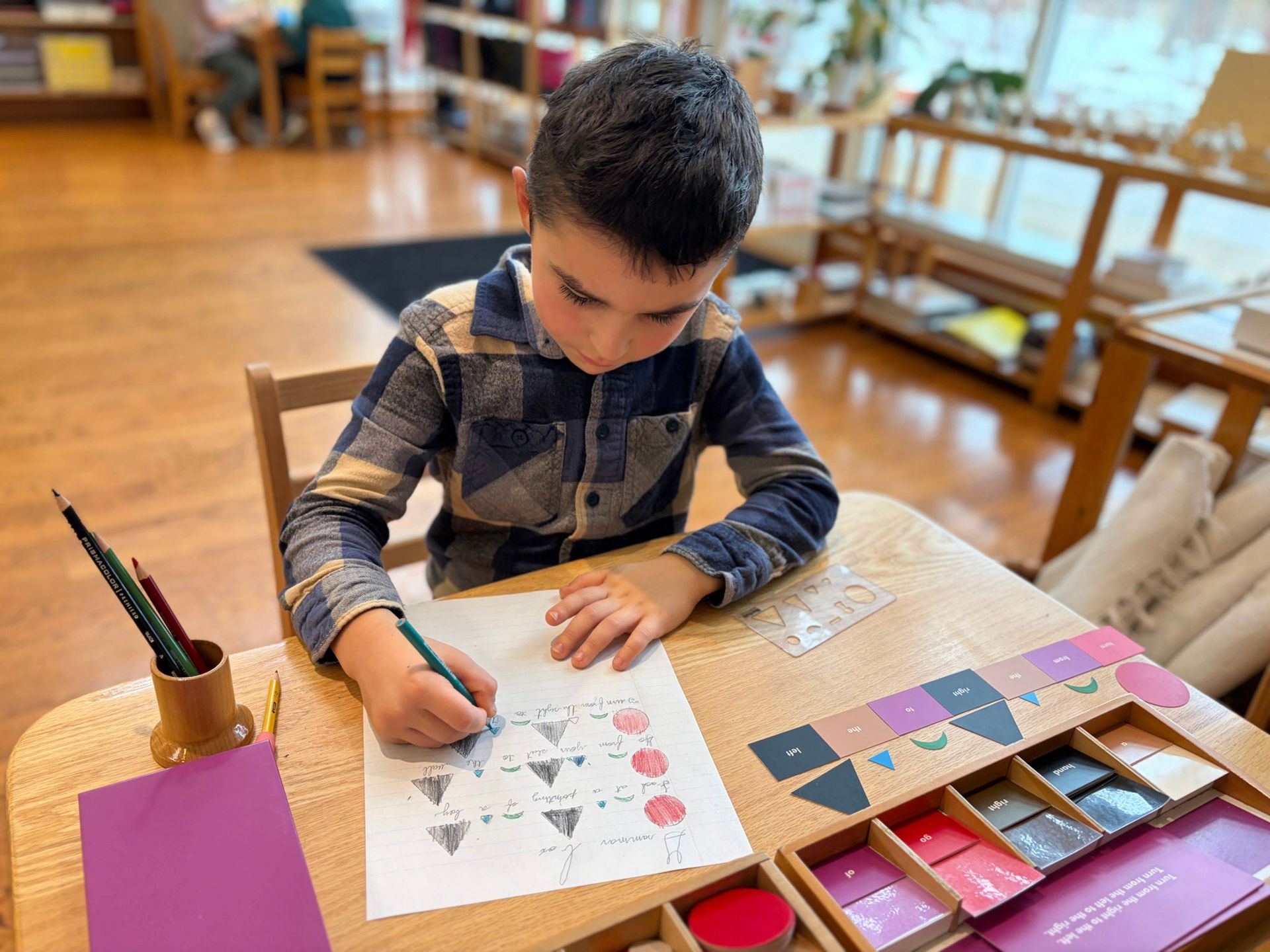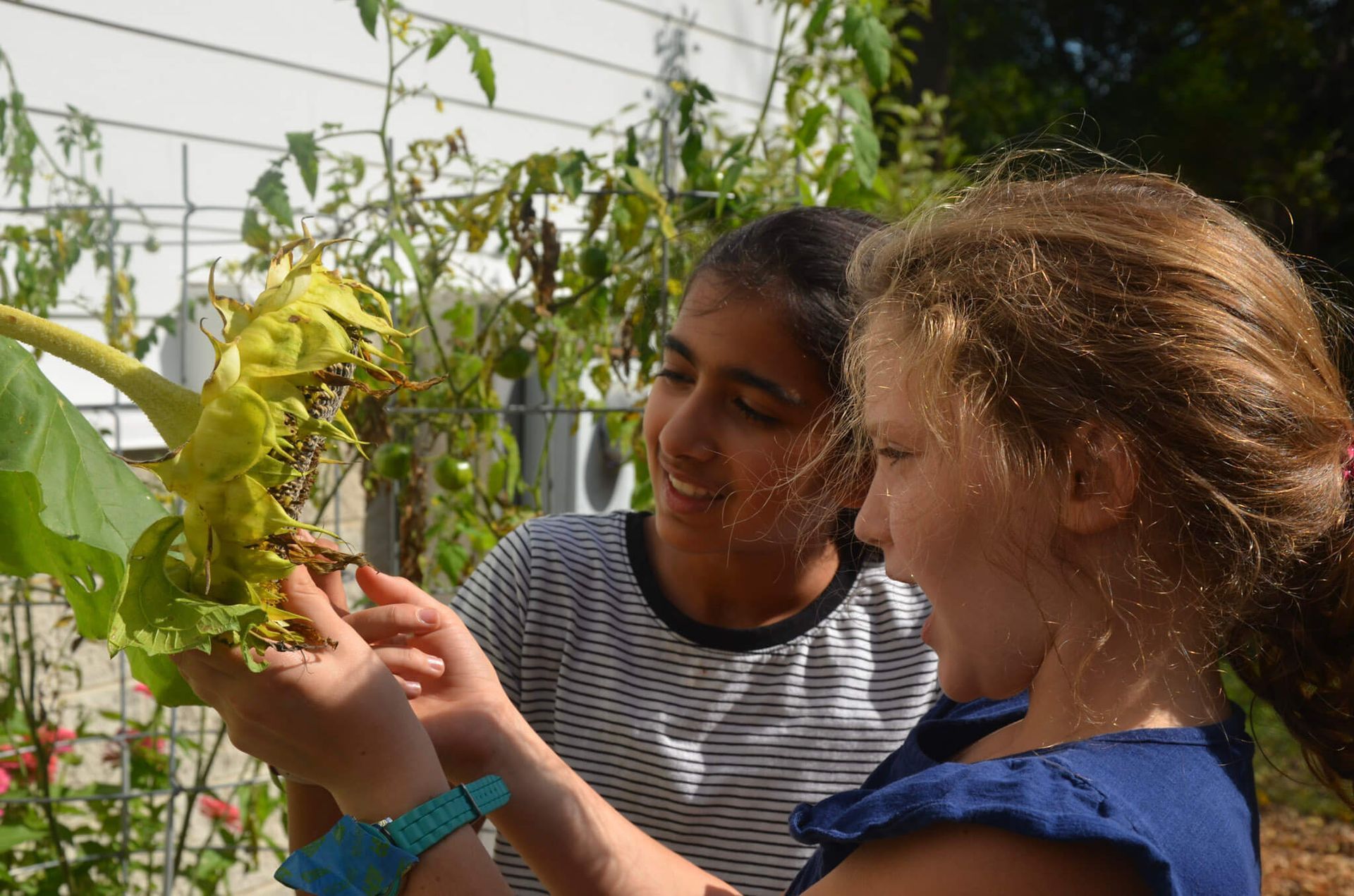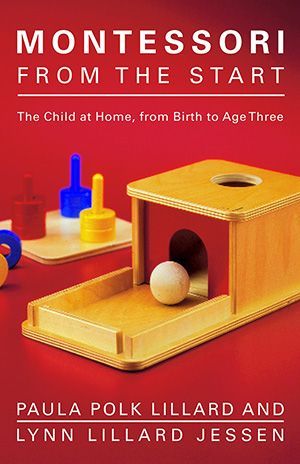
Education Begins at Birth
Dr. Maria Montessori, a trained physician who specialized in pediatrics and psychiatry before establishing her own educational philosophy and approach, recognized that tremendous brain, motor, and personality development occur during the first three years of a child’s life. These observations, once considered revolutionary, are now widely accepted among early childhood professionals and researchers.
Given her understanding of the earliest years of human development—in which the child, from the moment he is born, uses all his senses for the important work of constructing his own personality and intellect—Montessori believed that education begins at birth. Accordingly, she emphasized the importance of preparing the home environment and caring for the youngest of children in a way that supports their intrinsic drive to learn and need for independence.
Montessori from the Start
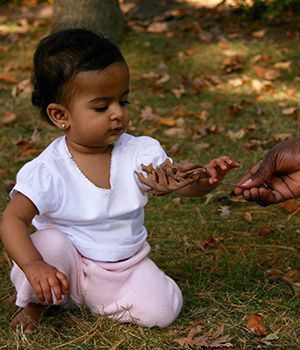
At Forest Bluff School, we offer Montessori parenting classes about Dr. Montessori’s theories and her recommendations for parents of very young children. In each session we discuss ideas and offer practical suggestions to help parents in meeting their children’s needs for: independence in self-care, coordinated movement of the whole body, language acquisition, and the gradual development of a self-controlled will. The inspiration and guiding principles for these parenting classes come from Montessori from the Start: The Child at Home, from Birth to Age Three, coauthored by Forest Bluff School co-founders Paula Polk Lillard and Lynn Lillard Jessen.
Montessori from the Start was written to be a resource for parents wondering how they can best support the development of their babies and young children within a Montessori framework. In explaining how the Montessori approach of hands-on learning and self-discovery relates to babies and young children, the authors refer to Dr. Montessori’s suggestions for raising infants and the materials she created for the care and comfort of babies. Since its first publication in 2003, parents and caregivers have turned to Montessori from the Start when seeking advice on feeding, sleeping, toilet training, and more.
The Discussion Guide
To further support parents and schools who wish to engage in deeper conversation about the topics presented in the book, there is now a Montessori from the Start Discussion Guide, with thought-provoking questions to accompany each chapter. We encourage parents and educators to download the Discussion Guide and use it for both individual reflection and small group discussion. At Forest Bluff School, we gather with parents in guided conversations throughout the school year. The feedback we most often receive from parents is how reassuring and helpful it is for them to share with each other their parenting challenges and successes.
When leading a small group discussion about Montessori from the Start, we recommend focusing on one particular topic or chapter that can be explored in depth, such as preparing the home environment or the child’s need for real-world sensorial experiences and objects. The questions for each chapter begin with a pertinent quote from the book, which can be used as a springboard for conversation. For example, in the chapter titled “Discovering the World” the authors state:
It is important now to take time to think about the organization of the home… Does it make sense? Is it ordered, simple, and functional? Is it beautiful? We want the baby to discover an orderly environment and thereby incorporate this order within her own mind (p. 47).
Questions to accompany this quote are:
What are the areas of your own home where it is the most challenging to create order? Are there areas that are naturally organized? What are ways you have found that make it easier to have an orderly home?
The above quote and accompanying questions could themselves inspire an hour-long discussion about how to best organize a home for the needs of the young child. Once parents get talking and sharing ideas, the discussion may take on a life of its own. We suggest introducing new questions and quotes on an as-needed basis, to guide the discussion back to the topic at hand, rather than trying to “get through” a predetermined number of discussion questions.
In addition to providing context for the questions, the selected quotes are helpful for parents who may not have read the book in its entirety. At Forest Bluff School, we believe it is important to invite parents to participate in book discussions even if they have not yet had an opportunity to read the book. The Montessori from the Start Discussion Guide was written such that it can be used regardless of whether or not someone has read the book, as many of the questions require self-reflection and thinking about one’s own child. For example, in making the point that the youngest of children need experiences with the real world—rather than screens and fantastical realms—the authors state:
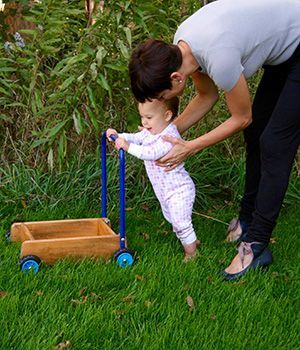
This is the time [12-18 months] to begin the habit of a daily walk with your child. This walk should be a meandering one, one that follows the child’s mission, not the adult’s. The child stops to inspect everything… In our accomplishment-oriented lives, we lose sight of the joy and beauty of living in the moment and of savoring the details of life (p. 85).
The accompanying questions are ones that any parent can ponder:
When have you had the experience of slowing your own life to your child’s pace? What did you notice about the world during these times? How did you feel? How did your child respond to this period of time that was adjusted to her own pace?
Whether you are an educator looking to engage parents of young children in conversation about Montessori-based parenting principles or an expectant parent wondering how you can prepare your home for your newborn, the Montessori from the Start Discussion Guide can serve as a useful tool for reflection and inspiration. Given what we now know about early childhood brain development, it is clear that Dr. Montessori was right in her assertion that the youngest of children are doing the critical work of constructing their intellect and personality from the moment they are born. By thinking about and sharing ideas about parenting from a Montessori perspective, parents can feel more confident about their choices when deciding how to best support their child’s early development.
PDF of Montessori from the Start Discussion Guide
PDF of Montessori from the Start Abridged Discussion Guide
PDF of Montessori Today Discussion Guide
